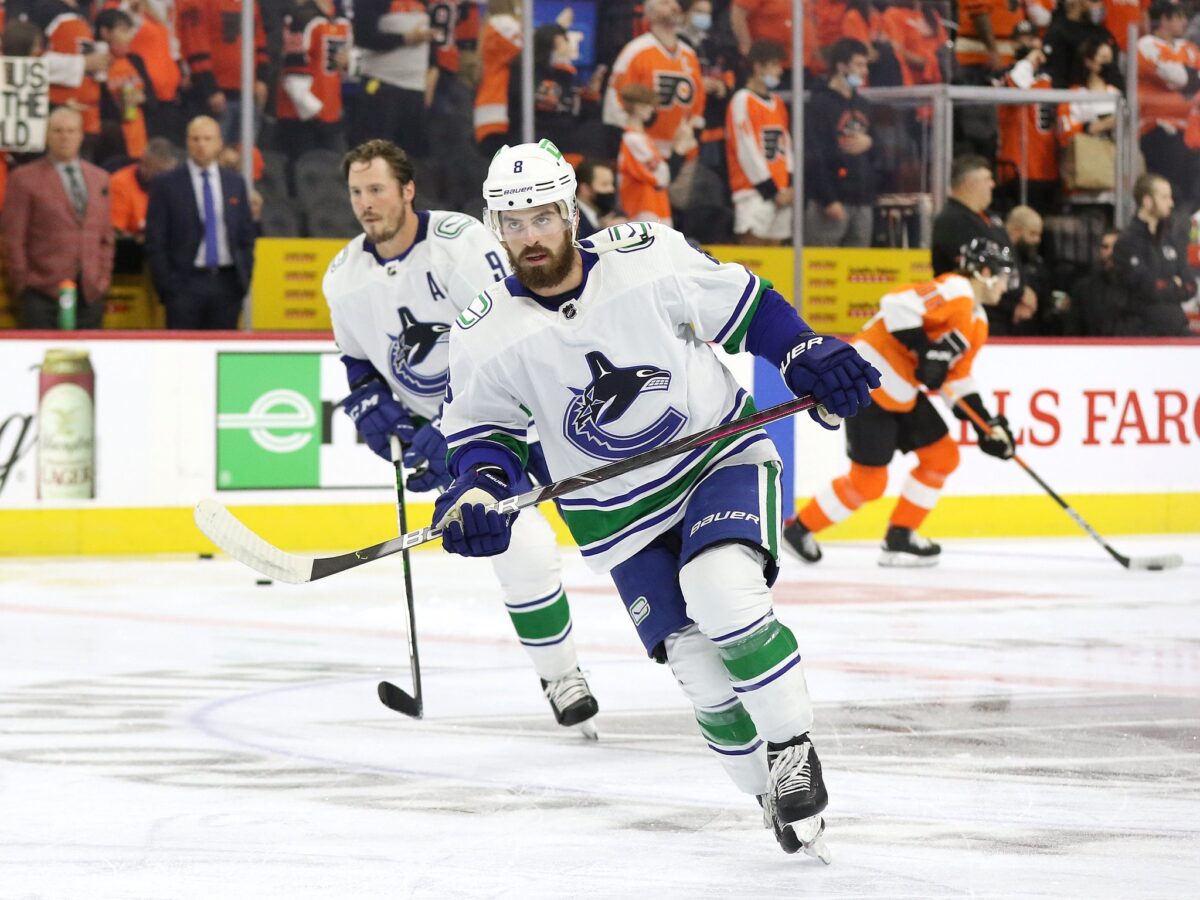With the NHL regular season roughly at the halfway mark, teams have had the chance during the break to evaluate where they are in the standings and make adjustments for the second half of the season. The Vancouver Canucks can look at a variety of areas to improve on, but when Bruce Boudreau sits down with his coaching staff to discuss, one topic that will definitely be brought up is the lack of offense.
Through their first 46 games, Vancouver is currently ranked 28th in goals per game (GPG) averaging just 2.43. They also sit four points out of a playoff position, playing five more games than the final seeded Calgary Flames, with the Dallas Stars, San Jose Sharks, and Edmonton Oilers all ahead of the Canucks. If they want to climb their way into a playoff spot over the back half of the campaign, they need their star players, secondary scoring, and special teams to pick it up, or else they’ll be spending another summer watching the postseason at home.
Vancouver Star Players Struggling to Produce
One of the main attributes that account for the Canucks lack of scoring has been within their top-end players. Outside of leading scorer J.T. Miller, who has 44 points in 44 games, and defensemen Quinn Hughes (who has 34 points), the other cornerstone players have been struggling to set the pace for this Canucks team.
The captain is a pretty good place to start. Bo Horvat has seasons of 61, 52, and 52 points while scoring 20+ goals for four consecutive seasons between 2016 and 2020. While he might eclipse the 20-goal plateau with 13 goals so far, he’s on pace to put up just 46 points over an 82-game season. Whether he’s playing on the top-line with Brock Boeser or centering the second line with Conor Garland, the Canucks need more from their captain following the break.
Boeser is in the final year of a three-year, $17.63 million deal, and if he was looking for a raise on his next contract, he’s not doing himself any favours. The three-time 20-goal scorer is on pace for roughly the production as he has last season (49 points). The only problem is that he’ll need 24 more games to do so this season. He has been heating up, with five points over his last four games, but he’ll need to continue that trend to help propel Vancouver into the playoff race.
Related: Canucks’ Playoff Hopes Rely on an Elias Pettersson Turnaround
When Elias Pettersson was signed along with Hughes in the offseason (three-year, $22.05 million contract), the Canucks were hoping for his growth to continue to become one of the top young centres in the game. While he is still just 23 years of age, Pettersson has put up just 24 points through 46 contests. That’s a far cry from what his average has been through his first three seasons, where he put up 66 points as a rookie and sophomore while scoring 21 in 26 games before being sidelined for the remainder of last season (30 games), with a wrist injury.
Vancouver Secondary Scoring Not Bailing Out The Team
When the top-end players aren’t producing, usually a team can look to its secondary scoring to bail them out on occasion. That’s what the Canucks attempted to address in the offseason, bringing in Garland from the Arizona Coyotes, to go along with other players like Tanner Pearson and second-year player Nils Hoglander. However, it hasn’t transpired that way through the first 46 games.
Garland is currently tied for third in team scoring with 24 points (along with Pettersson and Boeser), but the other secondary scoring options haven’t held up on their end. Pearson, who in fairness is having a better season this year than last, has just seven goals and 19 points in 42 games, and Hoglander is sitting on six goals and 15 points in 45 games, after scoring 27 points in 56 games as a rookie.

Throw into the mix Jason Dickinson (six points in 43 games), Alex Chiasson (nine points in 39 games), and Tyler Motte (nine points in 31 games), and it’s no wonder Vancouver is ranked in the bottom five in goal scoring.
Special Teams not Giving Team Any Boost For Canucks
An area that usually helps teams when they’re struggling offensively is the power-play unit. It can be an outlet to get the ball rolling, or an area a team can lean on if they’re struggling at five on five. But the Canucks haven’t had that boost this year.
You may also like:
- Canucks Draft Misses Since 2015
- Canucks’ Top 15 Prospects for 2024-25 Season
- Daniel Sprong: What to Expect From Canucks’ Newest Signing
- Vancouver Canucks Sign Daniel Sprong to 1-Year Deal
- 5 NHL Teams That Improved in Free Agency
Vancouver’s power play is scoring at 18.9%, ranked just 20th across the league. While that’s not awful, pairing that with the 28th ranked GPG team doesn’t bode well. What’s even worse is they’ve been getting outstanding goaltending from NHL All-Star Thatcher Demko, who has the Canucks ranked seventh overall across the league in goals allowed at 2.67 per game. If Vancouver can get a kickstart on their power play, it might trickle down the lineup towards their five-on-five play too.
Whatever Boudreau and company have to do to get this Canucks team going, they better do it fast. With the trade deadline fast approaching, it’ll soon determine with where they are in the standings what they do come March 21.